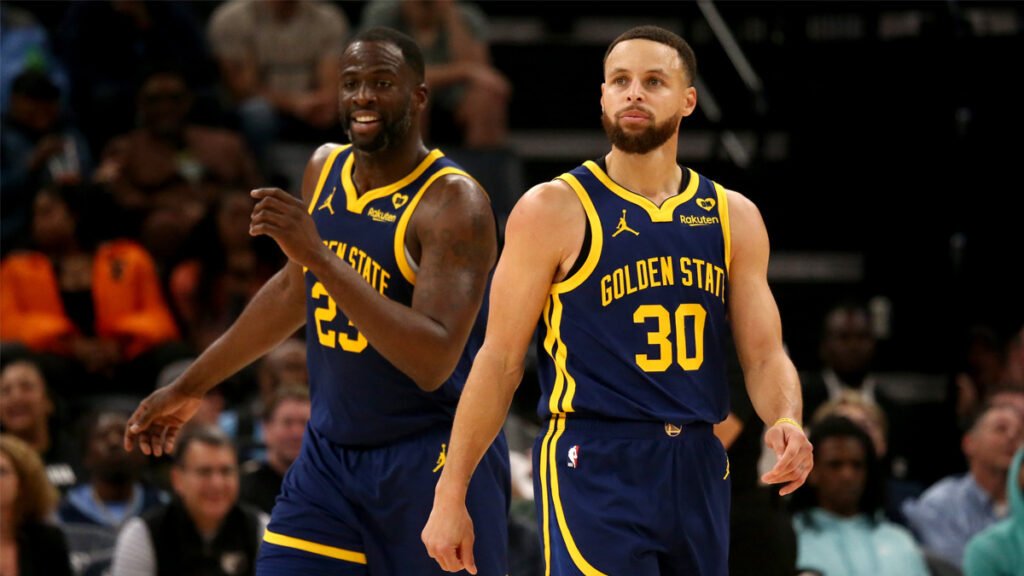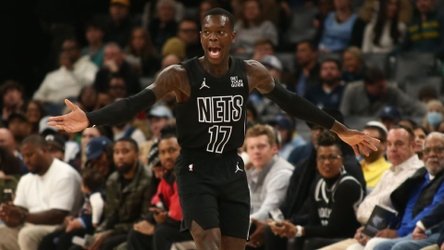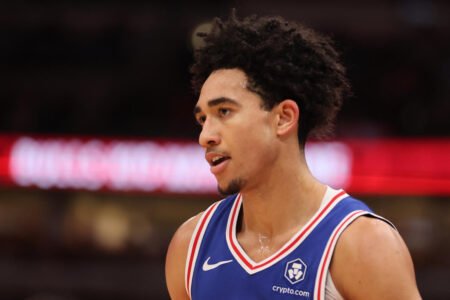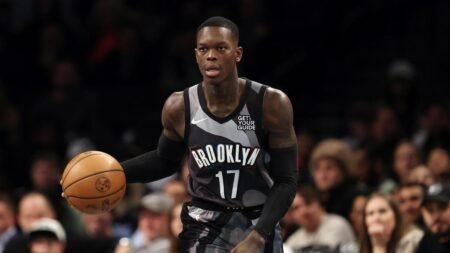Steph, Draymond best bets to lift Warriors out of late-game quagmire originally appeared on NBC Sports Bay Area
SAN FRANCISCO – The first sign of the Warriors loosening their grip came not when they blew a 17-point lead over the final 14 minutes on Nov. 23 in San Antonio. Nor was it any of the four consecutive defeats that followed.
Golden State’s ongoing skid was conceived 13 days earlier, in the fourth quarter of an 11-point victory at Oklahoma City.
The Warriors on that night dominated the first three quarters, shooting 54.9 percent from the field, 50 percent from deep, recording 30 assists and taking a 107-79 lead. Though OKC big man Chet Holmgren left with an injury in the opening minutes, this still was a resounding statement on the floor of the team that last season posted the best record in the Western Conference.
That statement was muted in the fourth quarter. When Golden State’s bench, praised relentlessly in the opening weeks, was outscored 11-0 in less than three minutes, coach Steve Kerr immediately reinserted veteran starters Stephen Curry, Draymond Green, Andrew Wiggins and De’Anthony Melton to halt the Thunder comeback.
The Warriors lost the quarter by 17 points but didn’t fret. They won.
That was the first of a 15-game stretch in which the Warriors outscored their opponent only four times in the fourth quarter. They were 7-8 during that span and 16th in the NBA in win percentage. That’s the best that can be said of the last 15 games.
A look through the microscope at the fourth quarters of those 15 games reveals Golden State is 19th in assists, 21st in 3-point shooting percentage, 26th in personal fouls, 27th in steals, 28th in turnovers, 29th in overall field-goal percentage – and dead last in scoring, free-throw percentage and plus/minus.
Since winning seven of their first nine games, the Warriors have been the worst fourth-quarter team in the NBA.
“It’s been rough,” Kerr said after the team’s 90-minute practice on Saturday.
“We’re not getting organized well enough,” he added. “I think we’re playing slower, too. Our pace is down. The last game, it felt like we were trying to bleed the clock with three minutes left. We’ve got to keep the pace going and get a good shot rather than try to run the clock out.”
These are some of the issues that compelled the Warriors to trade for veteran guard Dennis Schröder, a playmaker/scorer whose presence will make things easier for Curry and everyone on the floor. He adds a two-way dimension lacking since De’Anthony Melton, who was sent to Brooklyn in the deal, was lost for the season a month ago.
Though Schröder’s defense is welcome, his offense is needed. He’s averaging 18.6 points and 6.6 assists per game.
Until he arrives, the Warriors will zero in on buttoning up the shortcomings that have plagued them during those 12 often-fatal minutes. That was the focus during practice on Saturday and probably will remain on the whiteboard until they conquer their crunch-time demons.
Having one game during a seven-day stretch, that being Sunday against Dallas, give the Warriors sufficient time to reflect, prepare and correct. The priority is clear.
“Late-game execution, situational stuff, just trying to take advantage of the time,” Kerr said. “One game in a whole week, it’s pretty rare to get this situation. So, we’re working on a lot of situational stuff that hopefully can help us close games.”
It’s as if the Warriors are a good team through three quarters before becoming an altogether different, and vastly inferior, squad once the final quarter gets underway. They led through three quarters in 10 of the last 15 games, and were outscored by their opponent nine times in the fourth.
Part of the problem is that the bench that was solid in the first three weeks has become ordinary or worse. It’s compounded by the fact that since Melton went down on Nov. 12, Kerr has been experimenting with starting lineups. That naturally affects rotations, which diminishes bench chemistry.
Golden State’s bench is second in the league in scoring (46.7 points per game), but that’s misleading because it also is second in minutes. It’s the offensive production that has flattened, as the reserves are 19th in field-goal percentage, 21st in 3-point shooting percentage and 26th in true-shooting percentage.
Those numbers, harmful at any rate, take a dip in the fourth quarter.
“In the first three quarters of all these games, we’re playing with a certain pace,” said Kyle Anderson, the only one of the original 13 rotation players yet to start a game this season. “And it’s flow we’re comfortable with. It gives us a lot of success on the offensive end all game. And then in the fourth quarter, with the nature of the game, we kind of slow it down. It’s where we’ve struggled so far.”
What’s the cure?
“Keeping the pace, staying aggressive, keeping our foot on the gas,” Anderson said. “And then just being smarter than maybe we have been in the past.”
That seems to be at the spine of the late miseries. Mental errors and reckless passes, often absent through three quarters, come out to play and often break the Warriors in the fourth. Only two teams, Memphis and Minnesota, are committing turnovers at a higher rate in the final quarter over the past five weeks.
Decorated vets Curry and Green are responsible for some of the more atrocious giveaways. They know it, usually the instant it happens. They see the video cuts the next day.
If the Warriors find a way to get beyond their late-game glitches, it’ll be Curry and Green who lead the way. They yearn for another deep playoff run, perhaps a fifth championship. And they know teams that can’t finish either fail to reach the playoffs or are the first to get ousted.
Download and follow the Dubs Talk Podcast
Read the full article here














